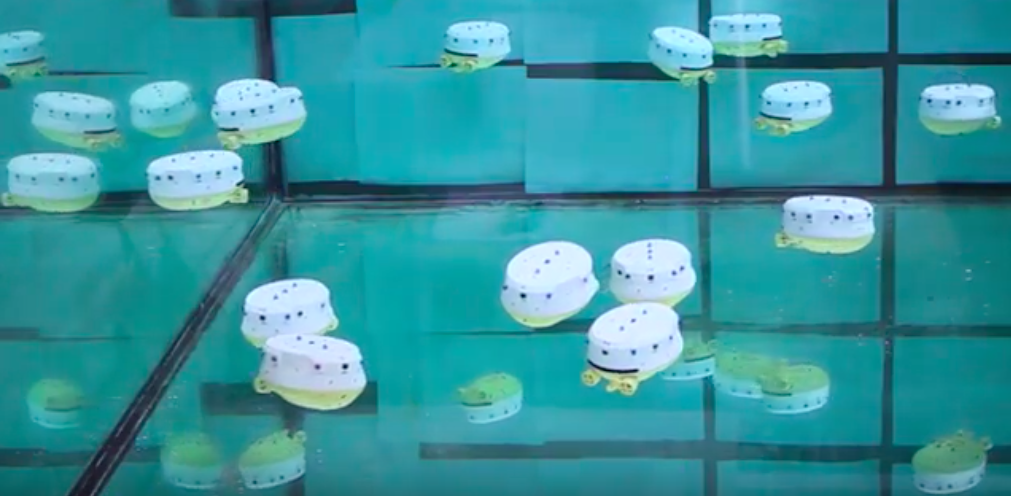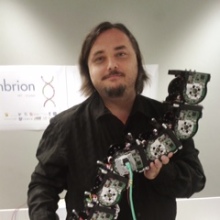
Robohub.org
The Year of CoCoRo Video #38/52: BEECLUST
 The EU-funded Collective Cognitive Robotics (CoCoRo) project has built a swarm of 41 autonomous underwater vehicles (AVs) that show collective cognition. Throughout 2015 – The Year of CooRo – we’ll be uploading a new weekly video detailing the latest stage in its development. This week we show an early laboratory experiment using the BEECLUST algorithm on a swarm of Lily robots.
The EU-funded Collective Cognitive Robotics (CoCoRo) project has built a swarm of 41 autonomous underwater vehicles (AVs) that show collective cognition. Throughout 2015 – The Year of CooRo – we’ll be uploading a new weekly video detailing the latest stage in its development. This week we show an early laboratory experiment using the BEECLUST algorithm on a swarm of Lily robots.
The BEECLUST is a simple swarm algorithm derived from the walking and resting behavior of young honeybees, who can compare several temperature spots in their environment and collectively choose the optimal (warmest) spot. In our video, the algorithm was translated to underwater robots.
The robots move randomly in their habitat. When they meet another robot, they measure how deep the water below is. The more shallow the water, the longer they stay in place.
By running this algorithm, the swarm is able to identify shallow places and collectively choose the shallowest. The same algorithm can be used to find the deepest point, the darkest or the brightest, simply by correlating the resting time of the robots with other local environmental properties.
The BEECLUST is one of the simplest swarm algorithms possible, possibly even THE simplest. However, an algorithm like this does not suit every application: in our experiments we found that, in contrast to crawling honeybees in the hive or driving wheeled robots on the ground, it is very tricky for an AUV to stay in place in water because of drift and turbulence. Even in an aquarium this is an issue, with a number of robots moving around, so we concluded that, for a more turbulent underwater habitat, we needed a better algorithm than the classical BEECLUST.
tags: AUV, c-Research-Innovation, CoCoRo, EU robotics industry news, UAV, underwater video




